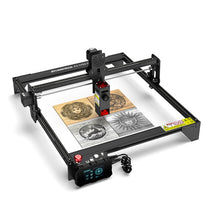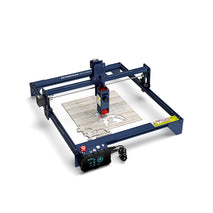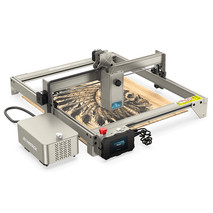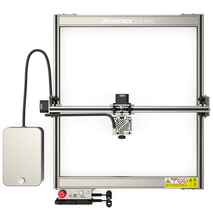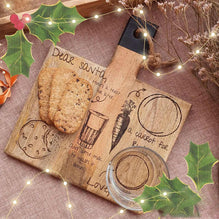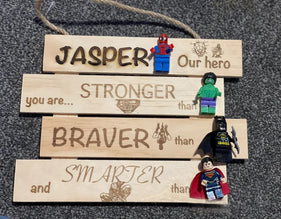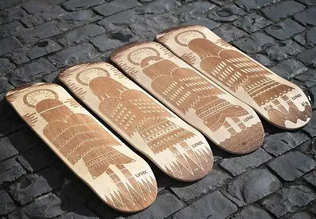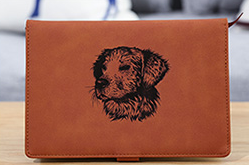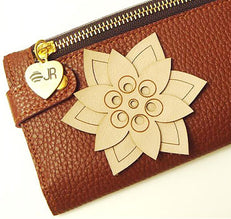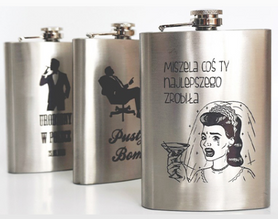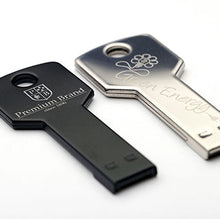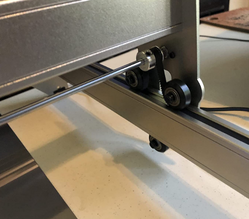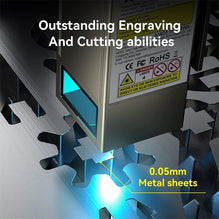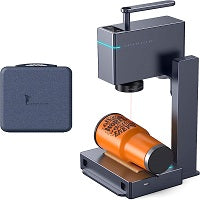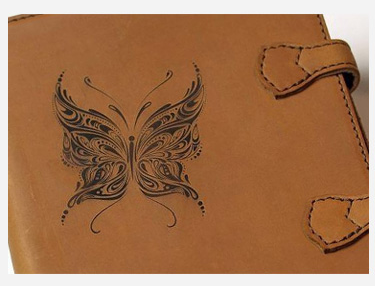
Wide Application of Laser Engravers in Textile Signage and Glass Industries
In today's technologically advanced world, laser engraving equipment is used more and more frequently in various organizations. These adaptable machines provide precise and dexterous engraving capabilities, making them essential tools for companies in the textile, sign and glass industries. Laser engravers have transformed these industries, creating beautiful textile designs as well as precisely etching logos on signage and glass materials.
In this article I will examine the various uses for laser engraving equipment and provide a comprehensive laser engraving machine buying guide for individuals looking to purchase this cutting-edge technology.
Laser engraving equipment has changed the landscape of the textile industry. Traditional methods require a lot of time and intricate handwork to create and design materials. With a laser engraver, the process is simplified, resulting in faster and more precise results. One of the main applications of laser engraving in the textile industry is fabric etching. Laser engravers can create intricate patterns, patterns, and even pictures on a variety of textiles, including cotton, silk, polyester, and denim. This opens up plenty of possibilities for designers, enabling them to create original and unique fabrics for upholstery, home decor and clothing.
The use of laser engraving equipment is essential to the sign industry to produce high quality and aesthetically pleasing signs. Laser engravers provide unparalleled precision when etching logos, text and designs onto a variety of materials such as acrylic, wood, metal and plastic. One of the particular advantages of the laser engraving method in the sign industry is its ability to create complex 3D designs. Laser engravers can create extraordinary three-dimensional logos that add depth to materials, attract attention and increase brand awareness. This talent is especially sought after in the architectural signage industry, where eye-catching signage can enhance the overall appearance of a building or place. Also, custom logos can be easily made thanks to laser engraving technology. Laser engravers offer versatility and speed when it comes to creating personalized signage solutions such as nameplates, directional signs or corporate branding.
The glass industry has undergone a revolution due to the use of laser engraving equipment. With laser engravers, glass etching has changed from a time-consuming and labor-intensive process to a simple one. With unparalleled precision, these machines can etch intricate patterns, patterns and even images onto glass surfaces. Many industries, including interior design, architecture, and promotional products, use laser engraved glass. Laser engraved glass can be used to create beautiful decorative panels, walls, and even furniture in interior design. Architects can use laser engravers to etch intricate designs into glass curtain walls, giving buildings a sophisticated and elegant look. Things made of laser-engraved glass are often given as corporate gifts or promotional items. Businesses can create distinctive and memorable items that leave a lasting impression thanks to laser engravers, which can create everything from personalized barware to personalized glass trophies.
Laser Engraver Buyer's Guide
To ensure you choose the ideal laser engraver for your unique needs, careful analysis is required before making an investment. Here are some important things to consider when buying a laser engraver:
strength and speed
The effectiveness and quality of the engraving process depends on the power and speed of the laser. Higher power enables faster and deeper engraving, and different speed settings allow flexibility for a variety of materials.
engraving area
Consider the size of the engraved area required for the application you have in mind. If you plan to work on larger materials such as fabric rolls or large quantities of signage, choose a machine with a larger engraving area.
material compatibility
Check that the laser engraver you choose is compatible with the material you wish to use. Different machines may have restrictions or special needs for certain materials. For example, some machines may be best for engraving cloth, while others may be best for engraving glass or metal.
Software and User Interface
A laser engraver's software is critical to the design and customization process. Choose a device with user-friendly software, simple controls, and a variety of design features. Also useful is compatibility with well-known design programs such as Adobe Illustrator or CorelDRAW.
Precision and Accuracy
Laser engraving requires precision and accuracy to produce beautiful designs and precise details. To ensure accurate results, look for machines with high-resolution engraving capabilities and cutting-edge positioning technology.
maintenance and help
Consider the maintenance needs of your laser engraver and the availability of technical assistance. Regular maintenance and timely support help extend the life of your machine and reduce downtime.
security features
Since laser engraving uses a powerful laser, safety should be considered first. To ensure a safe work environment, look for machines with safety features such as emergency stop buttons, interlock systems and adequate ventilation.
Budget
Create a reasonable spending plan for your laser engraver, taking into account the initial purchase cost of the machine as well as any recurring costs for maintenance, consumables, and software upgrades. Compare the various alternatives in your price range and evaluate the features and capabilities each machine has to offer.
The ability of laser engraving technology to produce precise and flexible engravings has fundamentally changed the textile, signage and glass industries. Laser engravers offer a wide range of customization and personalization options, including fabric etching for the textile industry, detailed 3D logo creation for the signage industry, and stunning glass patterns for the glass industry. Variables to consider when purchasing laser engraving equipment include power and speed, engraving area, material compatibility, software and user interface, precision and accuracy, maintenance and support, safety features, and budget. You can choose a machine that meets your unique needs and gets the most out of laser engraving technology for your company by carefully examining these factors. Htpowlasers is a well-known supplier of high-quality laser engraving equipment for the various requirements of companies in the textile, sign making and glass industries. Our cutting-edge machinery delivers exceptional accuracy, speed and versatility, making it easier and more efficient for businesses to develop unique designs and products. Htpowlasers is a company dedicated to customer satisfaction, providing comprehensive support, maintenance services, and user-friendly software, enabling companies to unleash their creativity and facilitate expansion. We provide many types of laser engraving machines, such as LONGER laser engraving machines, LaserPecker laser engraving machines, etc.
In this article I will examine the various uses for laser engraving equipment and provide a comprehensive laser engraving machine buying guide for individuals looking to purchase this cutting-edge technology.
Laser engraving equipment has changed the landscape of the textile industry. Traditional methods require a lot of time and intricate handwork to create and design materials. With a laser engraver, the process is simplified, resulting in faster and more precise results. One of the main applications of laser engraving in the textile industry is fabric etching. Laser engravers can create intricate patterns, patterns, and even pictures on a variety of textiles, including cotton, silk, polyester, and denim. This opens up plenty of possibilities for designers, enabling them to create original and unique fabrics for upholstery, home decor and clothing.
The use of laser engraving equipment is essential to the sign industry to produce high quality and aesthetically pleasing signs. Laser engravers provide unparalleled precision when etching logos, text and designs onto a variety of materials such as acrylic, wood, metal and plastic. One of the particular advantages of the laser engraving method in the sign industry is its ability to create complex 3D designs. Laser engravers can create extraordinary three-dimensional logos that add depth to materials, attract attention and increase brand awareness. This talent is especially sought after in the architectural signage industry, where eye-catching signage can enhance the overall appearance of a building or place. Also, custom logos can be easily made thanks to laser engraving technology. Laser engravers offer versatility and speed when it comes to creating personalized signage solutions such as nameplates, directional signs or corporate branding.
The glass industry has undergone a revolution due to the use of laser engraving equipment. With laser engravers, glass etching has changed from a time-consuming and labor-intensive process to a simple one. With unparalleled precision, these machines can etch intricate patterns, patterns and even images onto glass surfaces. Many industries, including interior design, architecture, and promotional products, use laser engraved glass. Laser engraved glass can be used to create beautiful decorative panels, walls, and even furniture in interior design. Architects can use laser engravers to etch intricate designs into glass curtain walls, giving buildings a sophisticated and elegant look. Things made of laser-engraved glass are often given as corporate gifts or promotional items. Businesses can create distinctive and memorable items that leave a lasting impression thanks to laser engravers, which can create everything from personalized barware to personalized glass trophies.
Laser Engraver Buyer's Guide
To ensure you choose the ideal laser engraver for your unique needs, careful analysis is required before making an investment. Here are some important things to consider when buying a laser engraver:
strength and speed
The effectiveness and quality of the engraving process depends on the power and speed of the laser. Higher power enables faster and deeper engraving, and different speed settings allow flexibility for a variety of materials.
engraving area
Consider the size of the engraved area required for the application you have in mind. If you plan to work on larger materials such as fabric rolls or large quantities of signage, choose a machine with a larger engraving area.
material compatibility
Check that the laser engraver you choose is compatible with the material you wish to use. Different machines may have restrictions or special needs for certain materials. For example, some machines may be best for engraving cloth, while others may be best for engraving glass or metal.
Software and User Interface
A laser engraver's software is critical to the design and customization process. Choose a device with user-friendly software, simple controls, and a variety of design features. Also useful is compatibility with well-known design programs such as Adobe Illustrator or CorelDRAW.
Precision and Accuracy
Laser engraving requires precision and accuracy to produce beautiful designs and precise details. To ensure accurate results, look for machines with high-resolution engraving capabilities and cutting-edge positioning technology.
maintenance and help
Consider the maintenance needs of your laser engraver and the availability of technical assistance. Regular maintenance and timely support help extend the life of your machine and reduce downtime.
security features
Since laser engraving uses a powerful laser, safety should be considered first. To ensure a safe work environment, look for machines with safety features such as emergency stop buttons, interlock systems and adequate ventilation.
Budget
Create a reasonable spending plan for your laser engraver, taking into account the initial purchase cost of the machine as well as any recurring costs for maintenance, consumables, and software upgrades. Compare the various alternatives in your price range and evaluate the features and capabilities each machine has to offer.
The ability of laser engraving technology to produce precise and flexible engravings has fundamentally changed the textile, signage and glass industries. Laser engravers offer a wide range of customization and personalization options, including fabric etching for the textile industry, detailed 3D logo creation for the signage industry, and stunning glass patterns for the glass industry. Variables to consider when purchasing laser engraving equipment include power and speed, engraving area, material compatibility, software and user interface, precision and accuracy, maintenance and support, safety features, and budget. You can choose a machine that meets your unique needs and gets the most out of laser engraving technology for your company by carefully examining these factors. Htpowlasers is a well-known supplier of high-quality laser engraving equipment for the various requirements of companies in the textile, sign making and glass industries. Our cutting-edge machinery delivers exceptional accuracy, speed and versatility, making it easier and more efficient for businesses to develop unique designs and products. Htpowlasers is a company dedicated to customer satisfaction, providing comprehensive support, maintenance services, and user-friendly software, enabling companies to unleash their creativity and facilitate expansion. We provide many types of laser engraving machines, such as LONGER laser engraving machines, LaserPecker laser engraving machines, etc.
Older Post
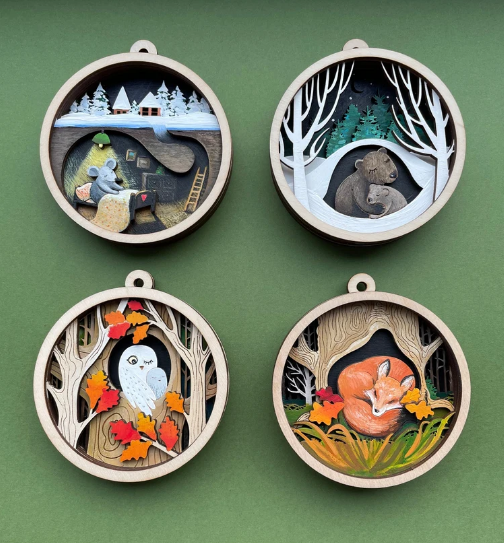 Newer Post
Newer Post
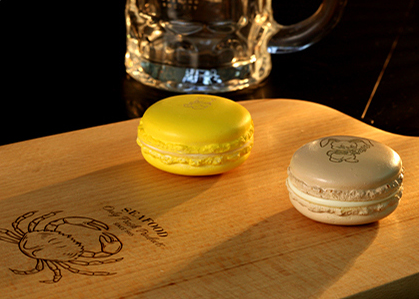
Unleash your creativity with a laser engraver

How to Laser Engrave Your Custom Cutting Board?


